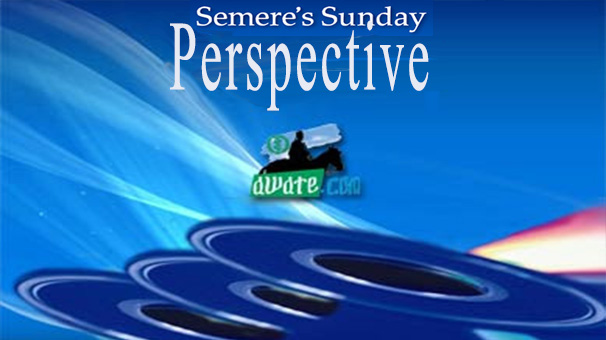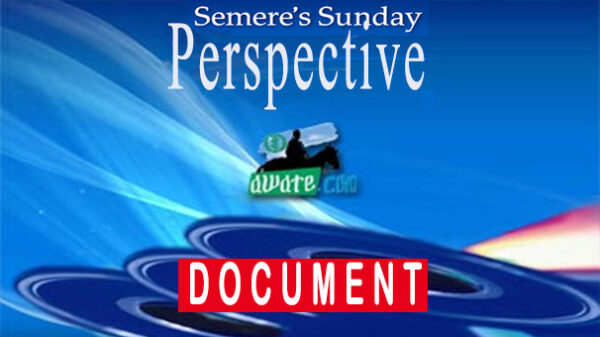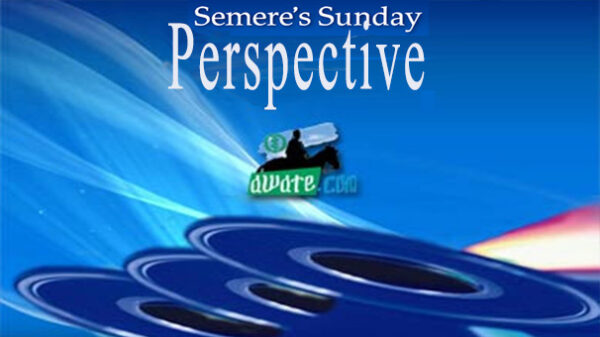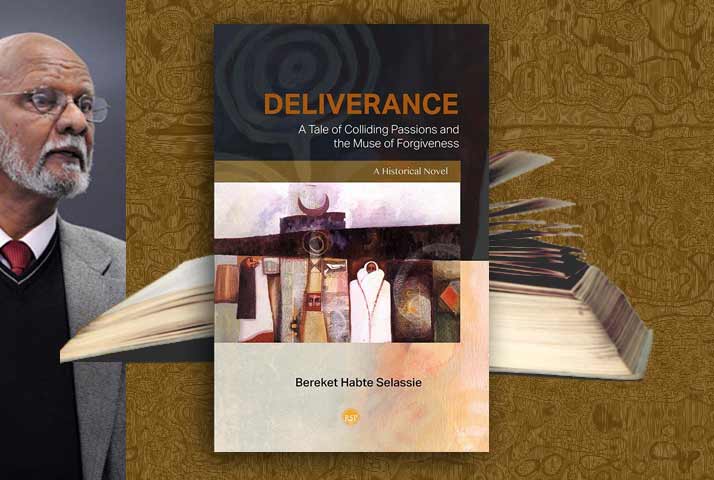Ts’əmdi and Ts’imdo: Joined for Utility, Not Unity

In the semi-fertile soil of Tigrinya, the words ጽምዲ (Ts’əmdi) and ጽምዶ (Ts’imdo) bloom with layered meaning—practical, poetic, and political. Both conjure the image of two entities alloyed together, yet their applications diverge across the rhythms of life.
ጽምዲ, as in ጽምዲ ብዕራይ, refers to two oxen yoked to plough a field—a necessity for poor farmers who each own only one. It is a seasonal bond, forged by need and renewed only if the rains return. During ቆውዒ, the threshing of harvest, the same logic applies: two oxen paired to tread the grain. Functional. Temporary. Survival-driven.
It is a sobering truth: under Isaias, Eritrean agriculture remains shackled to the mercy of the skies. ኤህ፡ ዘመነ ኢሰያስ። This is no mere drought—it is a season of depletion: of wisdom, of justice, of vision. As Scripture warns, “When the wicked rule, the people groan.” And groan we have—year after year, harvest after harvest, hope after hope. The soil is parched, but so too is the soul of a nation.
It is time to end this long lament. Time to wipe away every tear and sow again—not only grain, but truth. Eritrea must become a land where justice rains, not just water. As Thomas Hood wrote in The Song of the Shirt, we have become a place where “bread should be so dear, and flesh and blood so cheap.”
ጽምዶ, by contrast, belongs to the realm of poetry. It describes stanzas that fit well together—harmonious, complementary, but not necessarily enduring. It is aesthetic alignment, not structural unity.
That the Eritrean regime now invokes these terms in its overtures toward Tigray, in particular, and Ethiopia, in general, is no accident. After years of war, occupation, jingoism, defamation, and denial, the language of ጽምዲ and ጽምዶ surfaces in official discourse—suggesting a tactical “coming together” of former adversaries. But the metaphor reveals more than it conceals: this is not reconciliation. It is a seasonal yoking, a temporary alloy forged to plough the field of geopolitical opportunity—or to thresh the remnants of a fractured region. This is a region where war simmers or scorches, but never settles; where rulers inflate molehills into mountains and entrench their societies in cycles of perpetual conflict.
From Unity to Absorption: The Rhetoric of ልፍንቲ
This pattern of linguistic gymnastics is anything but new. In 1987, the EPLF—the undisputed hegemon of the Eritrean liberation struggle—quietly abandoned its 1970s rhetoric of “unity among equals” and introduced the concept of ልፍንቲ. Like ጽምዲ before it, ልፍንቲ signaled absorption, not alliance. In Isaias’s calculus, every grain of salt must dissolve into the PLF/EPLF reservoir. A little persuasion, a lot of coercion—that’s his formula for unity.
The bottom line was simple: he had to control both the process and the outcome. But the entrenched mindset that equates leadership with control and power with dominance must be dismantled if the region is ever to emerge from the shadows.
ልፍንቲ was a calculated pivot—a rhetorical sleight of hand that allowed the EPLF to consolidate power while preserving the illusion of collaboration and pro-unity sentiment. It was a masterful public stunt, more promotional gimmick than genuine policy.
ELF-Sagem was swiftly and thoroughly absorbed. Figures like Zemhret Yohannes and Ahferom Tewolde have performed their EPLF/PFDJ allegiance for so long they seem to believe it themselves—though within the EPLF, few take them seriously. This is regrettable. Many former ELF tegadelti I had the privilege of knowing spoke of them with genuine respect and admiration. By all accounts, Zemhret possessed considerable potential; in a healthier political environment, he might have emerged as a more influential figure. Still, he has gifted us two books that deepen our understanding of the anti-colonial resistance, and for that, I remain grateful.
Toteel—reportedly the sharpest among them, and I believe it, having read his book—attempted to assert himself, only to encounter the regime’s default response: imprisonment without due process. As for the nominal figurehead, Dr. Giorgis Teklemichael, he continues to do what he does best—nothing. In that regard, he’s in distinguished company; Eritrea’s ministers have perfected the art of inertia, their offices defined less by policy than by silence.
Zemhret took to the pen. Toteel chose resistance. Giorgis remained inert.
Ahferom, the consummate indoctrinaire of the Nacfa Cadre School.
The Illusion of Merger: ሱሙር ግምባር and the Politics of Convenience
Even in earlier phases, when the ELF earnestly called for full merger and unity, the PLF—and later the EPLF—responded with ሱሙር ግምባር: a posture of conditional cooperation that might, but almost certainly wouldn’t, lead to integration. In hindsight, Isaias’ objective had always been to purge the ELF from Eritrea altogether. Hence the oft-cited, so-called ትንቢት ኢሰያስ Isaias’prophecy: ዓማ ከም ጨው ክትሓቅቕ ‘ያ—“The ELF will dissolve like salt.”
Ironically, it was the ELF that first articulated the notion that the Eritrean field could not sustain more than one liberation organization. But it was the EPLF that fully embodied—and enforced—that logic.
The elimination of the ELF was not the fulfillment of prophecy—it was the calculated modus operandi of a man whose temperament and methods belong more to the Zemene Mesafint than to the modern eras of the 20th and 21st centuries. His ruthless strategy of systematically removing opponents, silencing dissenters, and neutralizing perceived threats to his authority has continued unabated since he seized the reins of power at the inception of the PLF, later the EPLF, and ultimately the PFDJ and the Eritrean government.
The term ሱሙር ግምባር was so flimsy, so devoid of institutional weight, that young Eritreans in Sudan—cohabiting outside of marriage—began using it to describe their own arrangements. It came to signify not commitment, but convenience; not a covenant, but a casual setup. In American parlance, it was simply “shacking up.”
That linguistic shift was no accident. It revealed a deeper pathology: a leadership that habitually trades substance for symbolism, and replaces principled commitment with tactical convenience. The regime’s recent invocation of ጽምዲ and ጽምዶ follows the same familiar script—deploying the language of unity while evading the demands of good governance, mutual accountability, and historical reckoning.
This is not new. The EPLF/PFDJ and TPLF were so consumed by their mutual destruction that the latter ultimately accused the former of genocide. Their ጽምዶ does not seem to be built on shared vision—it looks like a yoking of necessity, not conviction. And when the rains fail, so will the bond.
A Tactical Peace: ጽምዲ Without Reckoning
Don’t get me wrong—I believe that even a flawed peace is better than the finest war. If ጽምዲ and ጽምዶ can offer our people even a moment’s respite, I am morally bound to support it—and I do. But I cannot silence the pessimism of history.
As Albert Einstein warned, “We cannot solve problems with the same thinking we used when we created them.” The same EPLF/PFDJ and TPLF leaders who engineered this crisis cannot be trusted to resolve it. They must either undergo a complete transformation or step aside. The latter is not only more practical—it is more honest.
We carry a deeper responsibility: not to defer a conflict we lack the courage to confront, only to deliver its burden to the next generation. Peace without reckoning is not peace—it is postponement.
Peace must be earned—not improvised. Built—not borrowed. Truthful—not tactical.
If this moment of ጽምዲ is to carry any meaning, it must be forged in integrity. Only then can it yield not a fleeting truce, but a durable peace—one worthy of the people of Eritrea and Ethiopia.
Beyond the regime’s tactical use of language, both peoples have soul-searching to do. We cannot keep squandering opportunity, swinging like adolescents between infatuation and resentment every few years. This pendulum of passion—unanchored by principle—has cost us dearly. It has turned diplomacy into spectacle, and regional strategy into emotional impulse.
We might have dismissed these farcical conflicts as mere political theater, were they not devouring the lives of innocents by the hundreds of thousands—and arresting the development of both countries.
Wedi Tukul: ኣይፋልካን!
Even the legendary artist Wedi Tukul has joined the chorus to sing for ጽምዶ. To him I say: ኣይፋልካን. Wedi Tukul, remember your own words. You once sang: “ጒሒላ ከይወጸ ካብ ቤትና ኣይምለስን ‘ዩ ሽሻይና.” That truth still stands. There is only one ጒሒላ in ቤትና—and his name is Isaias Afwerki.
To sing for ጽምዶ without reckoning with the architect of our dysfunction is not art—it is amnesia. It is not poetry—it is performance. And it is not resistance—it is rehearsal for forgetting.
The Presidency Demands Gravitas
What Isaias once deemed clever may have passed for cunning during the liberation struggle—when improvisation was necessity and streetwise bravado a form of survival. But Eritrea is no longer a guerrilla outfit; it is a sovereign state, older than 34 nations that gained independence after 1993, and larger in territory than 96.
The presidency demands gravitas—not nostalgia.
Isaias was expected to grow with the office—to evolve from tactician to statesman. Instead, he remains trapped in the Asmarino ethos of adolescent defiance: a teenage agitator in a presidential suit. Power has not transformed him; it has merely magnified what he always was and remains—ነግራም መናቖቲ. In the language of Scripture: “One who sows discord among brothers,” “A perverse person [who] stirs up conflict,” “A dishonest man [who] spreads strife.”
Let’s throw his mask away.
We cannot let a small-town hustler hustle us out of what we richly deserve—peace, justice, and dignity. Eritrea must reflect maturity, not mischief. We can no longer afford to operate on an ad hoc basis, reacting tactically while ignoring the strategic architecture of governance.
We need institutions, not improvisations. Rule of law, not rule by impulse. Checks and balances, not unchecked bravado. We need foresight, not flattery.
Peace as Performance: The Spectacle of 2018
Many were briefly intoxicated by the so-called peace agreements of 2018 between PMAA and PIA, hoping for a new chapter. But what unfolded was not diplomacy—it was theater. A bromance, not a breakthrough. The two men did not behave like statesmen; one resembled an aging Afghani sheik, the other his bacha. It was a spectacle of proximity, not a strategy for peace.
Eritrea cannot afford to be a stage for personal dramas while its people hunger for normalcy. We need leadership rooted in principle, not performance. We need diplomacy that serves the people, not the personalities.
We must be more principled, more enlightened, and more strategic in how we conduct our affairs. That begins with clarity—about roles, legitimacy, and diplomatic norms.
Why is Eritrea engaging with Tigray as if Tigray were a sovereign state? If Tigray, as a region within Ethiopia, is to initiate dialogue with Eritrea, then let its geographic and cultural counterpart—Debub—be the one to respond. Let the people speak to each other as neighbors. But the Eritrean government, as a sovereign entity, must engage only with its counterpart: the Ethiopian federal government.
Anything else is a distortion of diplomatic protocol and a dangerous precedent. It undermines the sovereignty of both states and accelerates the fragmentation that has already cost us dearly.
But there’s a reason Asmera once served as the Mecca for rebellious movements and opposition groups across the Horn of Africa: like attracted like. A city steeped in the fomentation of strife became a magnet for troublemakers. And now, with serious allegations that Isaias is backing Fano militias in Ethiopia, the pattern continues—fueling instability under the guise of strategic engagement.
The Guns Must Fall Silent: A Moral Imperative
If there is even a shred of wisdom among those at the helm of power, their first act must be to make the sound of guns irrelevant—not through suppression, but through moral clarity. The guns must fall silent—first and foremost. Everything else follows from that.
No more guns. No more bloodshed. No more proxy wars. No more borrowed revolutions.
The era of armed struggle is over. It is passé. It is poisonous. It is beneath the dignity of our people.
We have buried too many futures in the soil of war. Our children deserve more than the inheritance of recycled violence. They deserve the dignity of peace, the promise of prosperity, and the forward motion of progress. Yet we have allowed, in the words of Marcus Aurelius, “the impediment to action to become the action.” What once stood in the way has become the way.
The Three Ps: Peace, Prosperity, Progress
Our collective focus must shift—urgently and irrevocably—to the three Ps: Peace, Prosperity, and Progress. Not as a slogan, but as a standard. Not as rhetoric, but as responsibility. This is the only path worthy of our people—and the only legacy worth leaving behind.
The G-15 heroes understood this. They did not merely dream of a better Eritrea—they pledged themselves to it. Deliberately. Courageously. They paid the downpayment for a peaceful, prosperous, and progressive nation with the currency of their lives: imprisonment, exile, and presumed death.
There is a reason Eritrea has clashed with nearly all its neighbors—Sudan, Ethiopia, Djibouti, Yemen. But the pattern extends beyond the Horn. In 1996–1997, an Eritrean contingent fought in the Democratic Republic of Congo—thousands of miles from home, with no clear national mandate. In the immediate aftermath of liberation, another unit was poised to join the war in Somalia, halted only by a last-minute decision.
These episodes reveal a regime addicted to militarized projection—seeking relevance through entanglement rather than reconciliation. It is not a foreign policy; it is a reflex. And it stems from a deeper fracture: a country that has not secured peace with itself cannot make peace with its neighbors.
The truth is stark. The regime has not reconciled with its own people, and its foreign policy mirrors that internal rupture. It projects hostility because it is built on fear. It seeks control because it cannot offer trust.
The cost has been unbearable. Tens of thousands of Eritrean youth have paid with their lives—sacrificed to a reckless and unprincipled leadership. To add insult to injury, their families have not even been granted the dignity of truth.
No መርድእ. No ተዝካር. No closure. Just silence.
From Tegadalay to Entrepreneur: The Path Not Taken
After independence, the EPLF was expected to beat its swords into plowshares—to transform the revolutionary into the builder. Just as postwar Japan reimagined the samurai as the samurai businessman, Eritrea might have reimagined the Ykealo tegadalay as the Ykealo entrepreneur. But that was asking too much of a leadership that had long scorned knowledge, wisdom, science, peace, and normalcy.
Instead of cultivating a generation of thinkers, builders, and peacemakers, it cultivated silence, fear, and exile.
Strikingly, it was an Ethiopian scholar and diplomat—Blata Hiruy Walda-Selassie, the first Foreign Minister under Haile Selassie—who grasped the relevance of the Japanese model for Ethiopia. After leading a delegation of “Young Ethiopians” to Japan in 1931, he published The Source of Light—The Country of Japan in 1932, a visionary reflection on modernization, discipline, and national renewal.
This is but one example among many that underscores the importance of reading and learning our own history. There is much to glean from the insights and foresight of our predecessors. More importantly, such historical engagement offers a vital link—a thread of continuity—that helps us redefine who we were, who we are, and who we aspire to become.
Politics, in this sense, is not merely the contest of power—it is the continual redefinition of identity. It is an open-ended question that invites every generation of Eritreans, Ethiopians, Somalis, and Horn of Africans to speak anew. It is as fluid as it is malleable, shaped by memory, struggle, and vision. But it is also vital—foundational—and we cannot afford indifference. To disengage from politics is to surrender the pen that writes our collective story.
Same Regime, New Label: The Illusion of Change
There is a pattern to the PLF, EPLF, and now PFDJ that cannot be dismissed. Anyone who seeks to be part of the solution must first confront the nature of Eritrea’s leadership. This is not a new regime. It is the same regime—rebranded, but unchanged.
And those who believe that a leopard will shed its spots—or that an eighty-year-old dog will suddenly learn new tricks—are either naïve or, worse, delusional. But if you think I’ve misread the moment, then by all means: show us the way.
We must not only remember—we must rebuild. Not for nostalgia. Not for revenge. But for the dignity of those who died without a name, and for the generations who deserve a future with one.
___
The author can be reached at: weriz@yahoo.com
- AfricanPolitics
- authoritarianism
- CulturalMetaphors
- DiasporaDialogue
- Diplomacy
- EPLF
- eritrea
- EritreanDiaspora
- GenerationalResponsibility
- HistoricalMemory
- HornOfAfrica
- isaiasafwerki
- LeadershipFailure
- LinguisticInsight
- NarrativePolitics
- OpinionEssay
- PeaceAndJustice
- PFDJ
- PoliticalAnalysis
- PoliticalEditorial
- PostConflictSocieties
- Reconciliation
- ReflectiveWriting
- StrategicThinking
- Tigray
- TigrayanVoices
- TigrinyaLanguage
- TransitionalJustice
- VoiceOfConscienc
- YouthSacrifice




Awate Forum